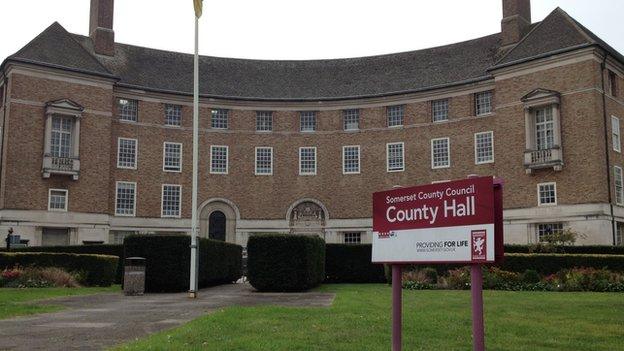Somerset parents helped to prevent children going into care
- Published
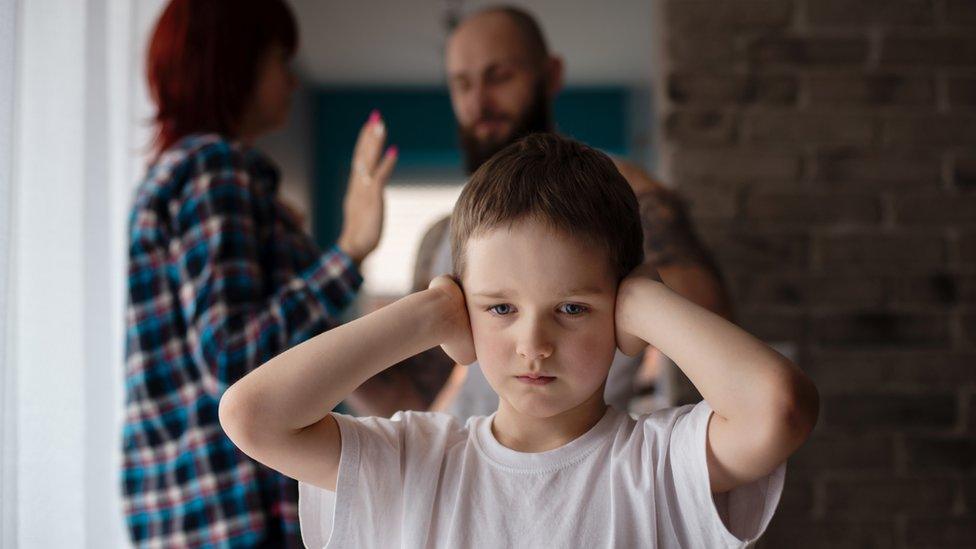
The service aims to keep families together by helping parents tackle issues that affect their parenting skills
Parents are getting help to tackle their alcohol, drug and mental health issues which can put their child at risk and see them placed into care.
Somerset County Council's Family Safeguarding service began six months ago and is working with 70 families.
The children's social workers team up with specialist charities to help the whole family.
The council said domestic abuse and addiction issues were present in 65% to 70% of its child protection cases.
'Helping them survive'
Last year, 3,441 children in the county were identified as being at risk of harm and were placed on the radar of children's social services.
The Family Safeguarding Service is working with partners: Somerset Drug and Alcohol Service and Turning Point to focus on substance abuse issues; domestic abuse support from YOU First; Rethink Mental Illness and its partner organisations MIND, Second Step and the Balsam Centre for mental health support.
YOU First senior domestic abuse advisor Jaimee Harper said: "Sadly what we find is our victims can be drinking or using drugs, not because they want to be, but as a coping strategy that's getting them through the day, that's helping them survive.
"And that's where this model works because my team can be looking at the domestic abuse side of things, but actually that person really needs help to come off those substances."
She has also worked with families in Germany in the same way.
"It's so much nicer and more rewarding for the families and particularly the children," she said.
"They get to stay with their parents - never mind the cost to the state of paying for that provision, that's not important to me.
"Those children get to grow up with their parents in a loving household, and that's what we all want."
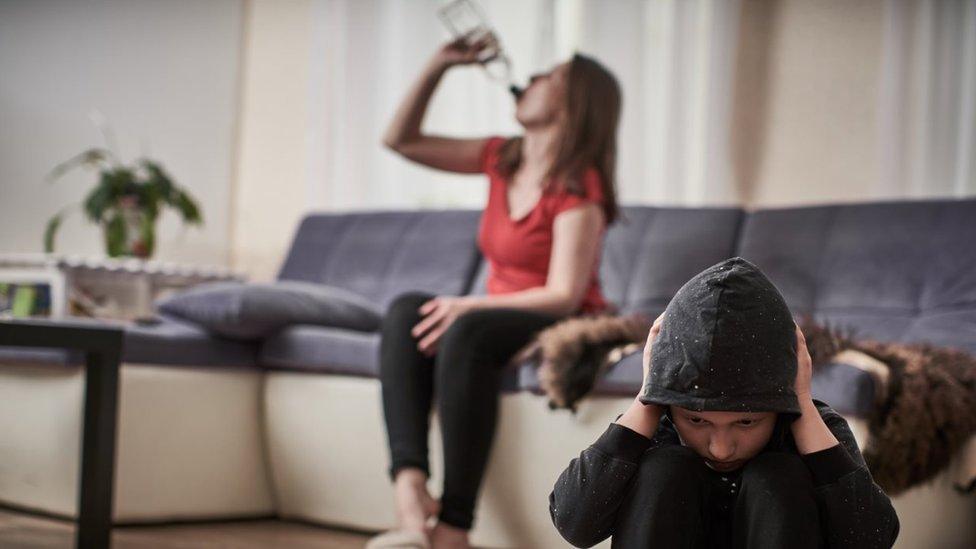
The county council says up to 70% of its child protection cases involve a parent with addiction problems
Stuart is a senior family drug and alcohol worker at Turning Point.
He used to have very little insight into his client's wider family life until now.
"Now we can go to the home, meet their children, get a bigger picture, and it's so much better," he said.
"There have been some families who just need low level support on how you can cut down in alcohol use, for example.
"Others need more intensive support, clients who could be injecting drugs. Then it's very much about risk management.
"We give them safe, locked boxes, ways of disposing of bits and pieces in a secure manner, and there's a constant line of communication.
"Honesty comes about very quickly with our clients and they want the best for their kids.
"Children are first and foremost, and should risk become unmanageable we escalate with our social worker colleagues."
Stuart says in the past it could take days to get hold of a social worker, but now he has everyone he needs saved on his mobile phone contacts list.
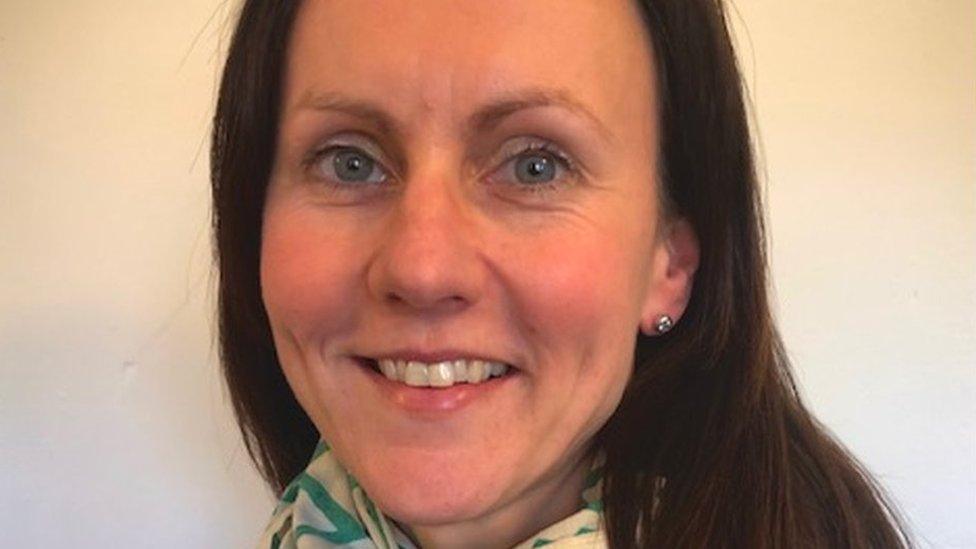
The council's head of safeguarding Becky Hopkins says the project seems to be working well, although it is early days
Rosie is a safeguarding social worker in Mendip.
She says the interplay between these issues in a family can cause serious harm to children's development.
"That can present as worries and anxieties, physical development and health problems, and all those basic foundations for children set the scene for how well they can thrive in education, peer relationships and into adulthood," she said.
Rosie agrees it can feel difficult to leave children in some family environments.
"The risk to the children has to be balanced against the strengths of those parents and you look at what could be put in place to help those children stay safely in their family unit."
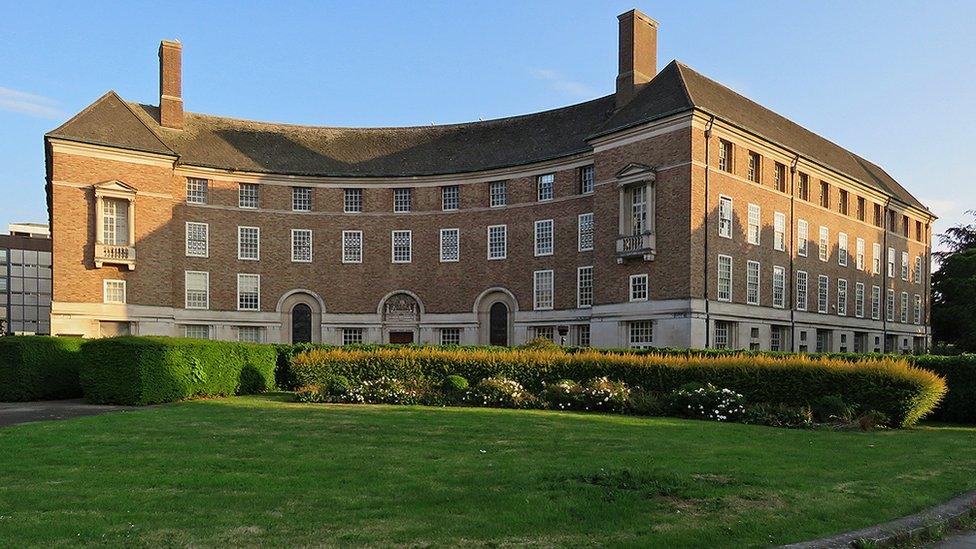
Children's services were rated as 'requires improvement' in 2017
Head of assessment and safeguarding at the council, Becky Hopkins said it was very early days for this approach and not all the teams were fully staffed.
However early signs are positive.
"Families are saying they really appreciate that they have a team of workers from different disciplines to support them to meet their needs as parents, so that they can meet the needs of their children," she said.
Based on other places where this has been tried, the council expects that fewer children will be taken into care as the model expands over the next couple of years and they could use the money they save to help more children.
"If we can address the needs of the parents we are less likely to get to a position where we say, 'We are so worried about this that we are unsure whether this child can stay in their family environment'.
"By getting in early we can support that change to happen in a positive way," added Ms Hopkins.
Somerset County Council's children's services was rated "inadequate" by Ofsted in 2015 and "requires improvement" in 2017.
In its 2017 report inspectors said: "At a senior level, there is good engagement and understanding of the practice issues.
"This is not always replicated in the multi-agency responses that children receive, and too many children's circumstances have to be escalated to senior leaders for effective action by partners."

Follow BBC West on Facebook, external, Twitter, external and Instagram, external. Send your story ideas to: bristol@bbc.co.uk , external
Related topics
- Published29 January 2018

- Published27 March 2015
